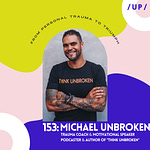Lorna Alexis is the influencer, model, blogger, and creator of Cystum of Curves. An advocate living with PCOS (polycystic ovarian syndrome), the word “cystum” is derived
from the word cyst, a characteristic of the syndrome. PCOS is known to cause weight gain and make that weight even harder to lose — so instead of letting PCOS get her down, Lorna decided to use her diagnosis as a platform for inspiration and motivation for others as she navigates the world … with curves. In this honest, revealing, and intimate episode, Lorna addresses that #bodypositivity life, how she contracted Type 2 diabetes as a direct result of living with PCOS, how she manages a healthy lifestyle, and why representation matters.
Tune in as Lorna shares…
what PCOS is: an endocrine disorder that begins in childbearing years and typically comes along with hormonal imbalance (usually excessive male hormone production), insulin resistance, hair loss/hirsutism, infrequent ovulation, irregular periods, blood clotting, and infertility/increased risk of miscarriage
that PCOS is linked to many other conditions
that some people living with PCOS develop cysts inside their ovaries — and the pain is similar to fibroid pain
that she was diagnosed shortly after graduating college, while enduring menses that lasted for 120+ days
that she wasn’t diagnosed right away, and also had to see several doctors before receiving the diagnosis
that she started having symptoms as early as 12 years old
that the doctor to diagnose her was Indian, and more familiar with PCOS than any of the American doctors she’d previously seen
that the historical trope of the “bearded woman” was most likely a woman living with undiagnosed PCOS
that most women living with PCOS need to be on low-carb diets in order to manage symptoms
that she had to change her relationship to food
what it’s like to live with fertility issues — and how she’s found strength in community and in being able to look toward other influencers and celebrities
how she avoids sugar crashes and fatigue
how routine supports her lifestyle and symptom management
discrepancies and bias in research, funding, and awareness because PCOS is a women’s health issue
that chronic illness changes the course of your life, and supportive mental healthcare is essential as you adjust to your new lifestyle and identity
why it’s important to become your own advocate and prevent others from policing your body














Share this post